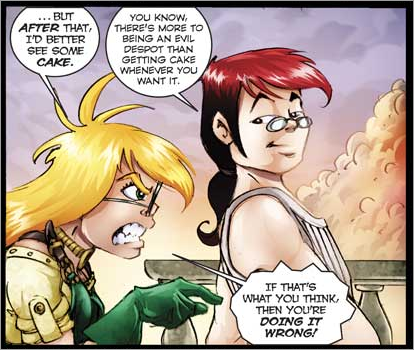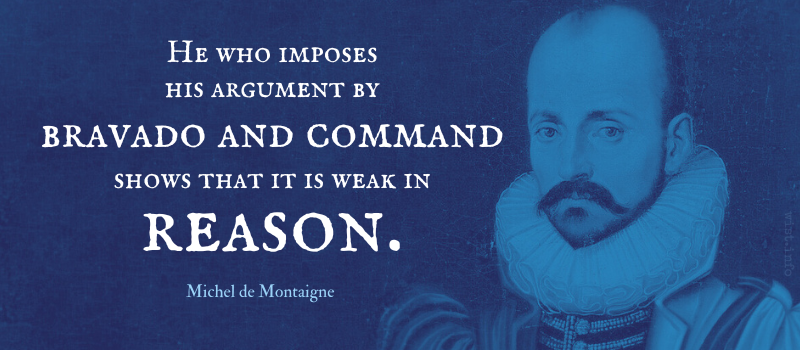The first lesson of economics is scarcity: there is never enough of anything to fully satisfy all those who want it. The first lesson of politics is to disregard the first lesson of economics.
Thomas Sowell (b. 1930) American economist and political commentator
“Student Loans,” Is Reality Optional? (1993)
(Source)
Quotations about:
demand
Note not all quotations have been tagged, so Search may find additional quotes on this topic.
AGATHA: … But after that, I’d better see some cake.
TARVEK: You know, there’s more to being an evil despot than getting cake whenever you want it.
AGATHA: If that’s what you think, then you’re doing it wrong!Phil Foglio (b. 1956) American writer, cartoonist
Girl Genius, Vol. 13, p. 38, “The Heterodyne Requires Cake” (10 Apr 2013)
(Source)
In Agatha H. and the Siege of Mechanicsburg (2020) [with Kaja Foglio], this is rendered:“But after that, I’d better see some cake.”
Tarvek glanced at her. “You know, there’s more to being an evil despot than getting cake whenever you want it.”
Agatha thought about this and was filled with a sudden conviction, one that would stand the test of time through everything else that happened to her through the years. “If that’s what you think, then you’re doing it wrong.”
I want
the world
and it will not fit
in my mouth.
He who imposes his argument by bravado and command shows that it is weak in reason.
[Qui establit son discours par braverie et commandement, montre que la raison y est foible.]Michel de Montaigne (1533-1592) French essayist
Essays, Book 3, ch. 11 “Of Cripples [Des Boyteux]” (1587) (3.11) (1595) [tr. Frame (1943)]
(Source)
(Source (French)). Alternate translations:He that with braverie and by comaundement will establish his discourse, declareth his reason to be weake.
[tr. Florio (1603), "Of the Lame or Cripple"]Who will establish his Discourse by Authority and Huffing, discovers his Reason to be very weak.
[tr. Cotton (1686)]He who will establish this proposition by authority and huffing discovers his reason to be very weak.
[tr. Cotton/Hazlitt (1877), "On the Lame"]He who establishes his argument by defiance and by command shews that his reasoning is weak.
[tr. Ives (1925)]Any man who supports his opinion with challenges and commands demonstrates that his reasons for it are weak.
[tr. Screech (1987), "On the Lame"]He who establishes his argument by noise and command shows that his reason is weak.
[Source]






